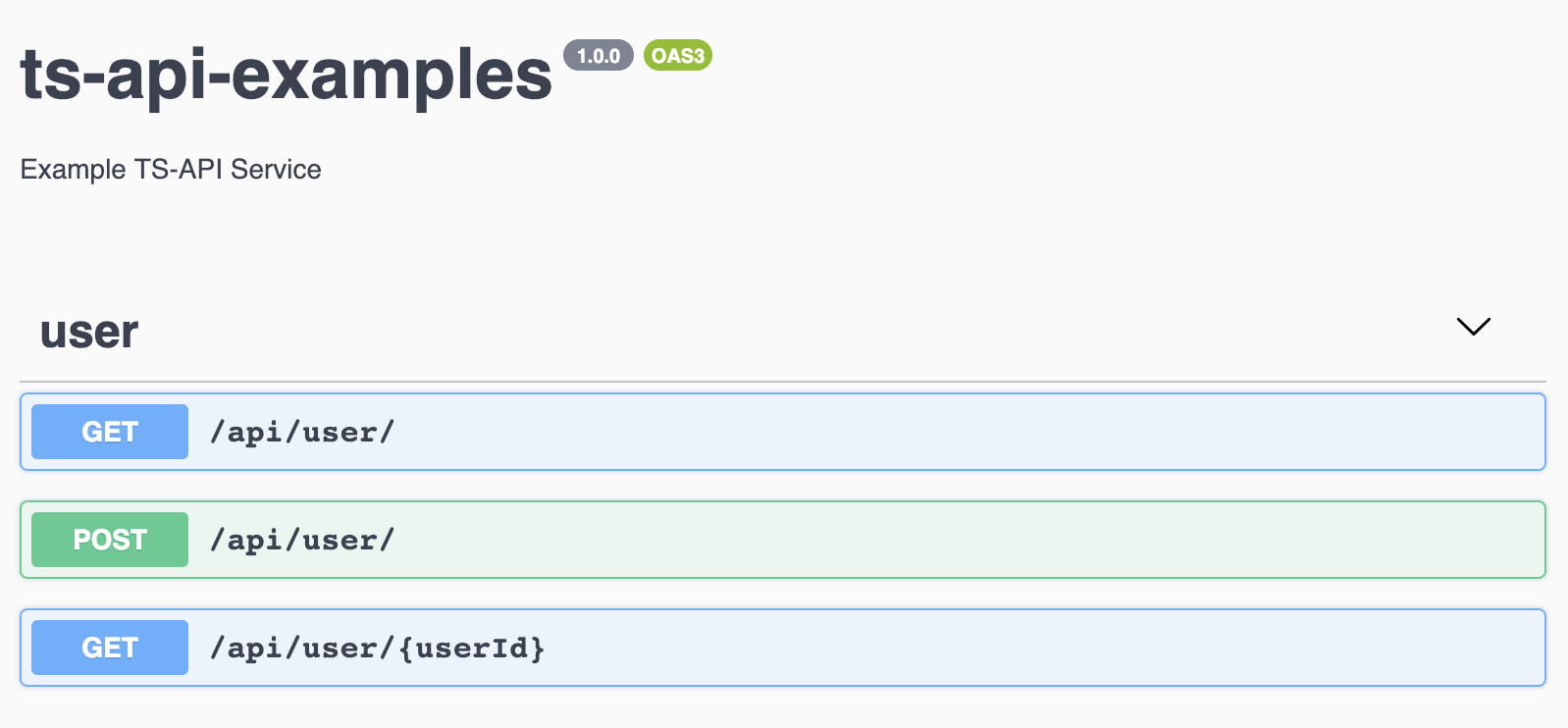APIs in NodeJS should have a single source of truth for api specs between code and docs, as well as compile time type safety.
Schemas are often duplicated between json schemas for input validation, typescript types, jsdoc comment annotations or swagger-specific wrappers in your app. Routes and response status codes also suffer from similar issues where code can get out of sync with documentation.
TS-API solves this by leveraging the typescript parser to generate:
- OpenAPI (Swagger) docs
- Runtime type checks with Json schemas
- ExpressJS routes to be mounted
- Optional correctness verification of status code <-> result type mapping
TypeScript types are extracted from the source code, such as this example:
export interface User {
name: string;
isActive?: boolean;
}is converted to a json schema:
"User": {
"type": "object",
"properties": {
"name": {
"type": "string"
},
"isActive": {
"type": "boolean"
}
},
"required": [
"name"
]
}@controller('/user')
export class User extends ControllerBase {
@get('/')
async listUsers(): Promise<User[]> {
...
return [{ ...account1 }, ...]
}The controller and Rest verbs (get, post, put, etc.) optionally take a route override, otherwise it uses the class or method name by default.
A router tree is build by TS-API from all controllers in the typescript path:
AccountRouter.get('/', async(req,res,next) => { ... }You can mount this anywhere in your app, use middleware, and treat it like any other ExpressJS router. The controller gives full access to req/res/next in the constructor. There's further customizations support, such as hooks to customize input validation, but by default it returns a 400 status.
OpenAPI 3 output for a sample controller:
ReDoc is also supported as viewer.
npm install --save-dev ts-api
First make this package a dependency. This will provide the necessary decorators @controller, @router @get @post, etc. The analyzer will search for those names and generate code that uses them, but these decorators also do things themselves like invoke the runtime type checker.
The key steps are:
- Create a class that extend the base controller
- Add a controller decorator to the class
- Decorate methods that represend API endpoints
- Use typescript interfaces for type declarations in the method arguments/response
See an example controller for a working reference.
@router('/api')
export default class Router extends RouterBase {
constructor(app: any) {
super(app);
require('./__routes')(this);
}
}The easiest way to do this is an npm script (or npm install -g):
tsc && cg
The cg CLI tool can take options and specific files:
cg <options> <list of files>
You can verify output by using the hosted docs. The route will depend on where you mount the app, such as:
